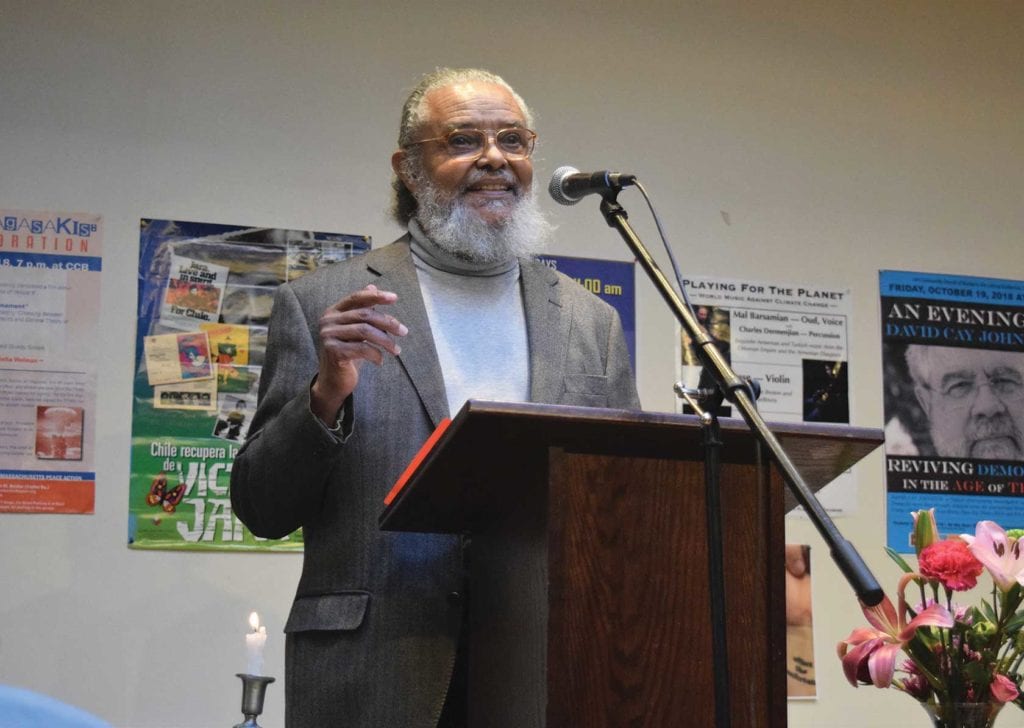Byron Rushing: U.S. still grappling with color line
America’s racial ‘amnesia’ keeps country from reconciling with past

Former state Rep. Byron Rushing, who served in the Massachusetts House from 1983 to this year, reflected on the problems of this century, inspired by W.E.B. Du Bois’ famous use of the phrase in his 1903 book, “The Souls of Black Folk.”
Du Bois, African American civil rights activist, academic and author, once wrote, “the problem of the 20th century is the problem of the color line.” He wrote about how the denial of opportunities and privileges to people with different skin tones and hair textures was the biggest issue plaguing society.
At a speaking engagement hosted by the Community Church of Boston on Sunday, Rushing stated that the problem of the 20th century is the same problem of the 21st century. And furthermore, the continuous cause of this problem is a collective societal amnesia of U.S. history.
“Considering the problems of these times, we have the opportunity to cure our amnesia,” said Rushing. “This recalling will never be easy. We have been and are the descendants of the horrible.”
He continued, “One piece of amnesia that is common to all of us who call ourselves Americans… is our so-called founding.” Rushing said we became who we are politically and socially through our history of “imperialism, slavery, deceit and theft.”
If you consider the year 1619 as the introduction of slavery to the North American British colonies, Rushing said, and the end of slavery as the passage of the 13th Amendment, “it will not be until 2111, that people of African descent will have been free as long as they have been enslaved in the United States.”
But this isn’t what we teach children in schools, Rushing said.
“Imagine asking a young student in elementary school how the country was founded and not hear the names Washington or Jefferson,” or the word, “discovery,” he said. “The colonists said if there are no other Europeans where they get to, it all belongs to them… they needed labor to exploit the land, so they went to Africa for it,” said Rushing.
The former State Rep. suggested that the way to combat the problem of the 21st century, the color line, was to “tell and act on the truth. Consider the paradigm [of U.S. history] to explain how we got here today.”
He later added, “We still want labor to be as free as possible. I don’t demonstrate for black people to get jobs, I demonstrate for black people to get salaries.”
Du Bois, who once spoke at the Community Church of Boston in 1950, also wrote about the importance of demonstrating and fighting for rights. “[The color line] is nothing to compare with that fight for freedom which black and brown and yellow men must and will make unless their oppression and humiliation and insult at the hands of the White World cease,” he wrote in “The Souls of Black Folk.”
Opening and closing the event were musical duo, Tem Blessed featuring Nadia, who rapped and sang songs about universal love and the Black Lives Matter movement.
The Community Church of Boston is an open community for the study and practice of universal religion, a “peace and justice congregation” since 1920.






